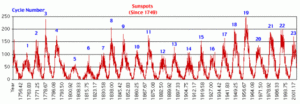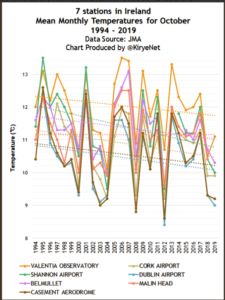by Cap Allon, November 19, 2019 in Electroverse
After decades of being lectured by the Met Office -among others– that global warming will bring an end to extreme-cold temperatures, the UK still somehow keeps-on clocking them — yet another example of how simple real-world observations can unravel the AGW-ruse.
Brits have been suffering-through an historically cold month, too — November’s average temperature has held well-below the norm for the first 17 days, continuing October’s dramatic cooling trend:
…
The Central England Temperature (CET) record measures the monthly mean surface air temperatures for the Midlands region of England, and is the longest series of monthly temperature observations in existence anywhere in the world.
Its mean reading for November 2019 (to the 17th) is sitting at 6.6C — that’s 0.7C below the already cool 1961-1990 average, the current standard period of reference for climatological data used by the WMO.
In the 360 years of CET data, there have only been 10 other years with an November average temperature of 6.6C — these are 1804, 1833, 1835, 1849, 1886, 1932, 1941, 1949, 1977, 1980.
Note also how the majority of these years fall in or around solar minimums of the past (1804, 1849, and 1980 being the only exceptions).

…

